Mobile bar business plan template + PDF
This guide offers a comprehensive Mobile Bar Business Plan template, ideal for entrepreneurs ready to launch or expand their mobile bar operations. It's essential to understand that the names and financial data included in this example are entirely fictional, used solely for demonstration purposes. These examples are crafted to show you how to tailor your own Mobile Bar Business Plan, adapting it to the distinctive features of your mobile bar venture.
To aid in customization, we provide a downloadable "Mobile Bar Business Plan PDF" . This document is a crucial tool for entrepreneurs committed to developing a strong and effective strategy for starting or growing their mobile bar. The "Mobile Bar Business Plan" serves as a detailed guide, delivering thorough insights into the mobile bar sector. It arms you with the necessary tools for successful management and growth of your mobile bar business.

How this mobile bar business plan sample was created
Easily craft a bespoke business plan for your mobile bar with our AI-driven business plan generator. Just hit the "Generate your business plan" button and answer a sequence of straightforward questions about your venture. Our advanced AI technology will analyze your responses to create a business plan specifically customized for your mobile bar's needs and goals. This streamlined process is quick, usually taking just 5-10 minutes, and delivers a comprehensive and well-structured plan. Our system is built for adaptability, enabling you to tweak and refine the plan to perfectly match your unique vision. Once you're satisfied, the plan is ready for download, offering you a clear and detailed roadmap for launching and growing your mobile bar business.

Mobile bar business plan sample
Executive summary, business description, market research and analysis, swot analysis.
- Organizational Structure and Management Team
Products or Services
Marketing and sales strategy, operations plan, financial projections, risk analysis.

Bar on the Go is an innovative business operating within the mobile bar industry, aiming to make every social gathering a memorable one by bringing the bar to the customer. Our target market includes event planners, adults hosting private parties, corporate events, and festival organizers.
Our primary service is providing mobile bars that include complete setup, supply of drinks and professional bartending services. Recognizing that events often lack sufficient bar facilities or require additional bar spaces, our offerings are designed to fit perfectly into any event format.
Bar on the Go is legally structured under the leadership of Peter Johnson, the CEO, with Emily Harris serving as the Operations Manager, Mark Collins as the Lead Bartender, three additional bartenders and two drivers who handle the transportation of the mobile bars. The key members of our management team include Peter, who holds an MBA with 15 years of experience in the hospitality industry, Emily, who has a degree in Business Administration with over 10 years of experience in the mobile bar industry. Michael Brown, our CFO, is a Certified Public Accountant boasting 15 years of experience handling finances in the food & beverage industry, and Mark, a certified mixologist with 12 years of experience in high-end bars.
Marketing activities will be channeled through social media advertising and word-of-mouth. We plan to establish partnerships with event planners and offer package deals for weddings, parties, and corporate events. Attendance and participation in food and drink festivals will be frequent, with first-time clients receiving special discounts.
The operations of Bar on the Go revolve around our three mobile bars - Sunrise, High Tide, and Nightfall- serving at diverse events around the city. Work hours are set from 6PM to 2AM on weekdays, and 4PM to 3AM on weekends, handling roughly 15 events on a weekly basis.
Financially, we anticipate steady growth over the next five years. Estimated revenue stream for Year 1 is pegged at $150,000, rising to $250,000 in Year 2. We have set a target of $400,000 by Year 3, $550,000 by Year 4, and expect to hit $700,000 revenue by Year 5.
However, we are aware of the potential risks involved in the business. Licensing issues, vehicle breakdowns, low demand, underage drinking, drunk driving, food and drink spoilage, and liquor liability are all areas we're keeping a keen eye on. Each of these risks has a corresponding mitigation strategy, including maintaining compliance with local laws, having an emergency mechanic on call, diversifying our offerings, implementing a strict ID checking policy, promoting responsible drinking, maintaining strict inventory management and carrying liquor liability insurance.
Additionally, contingency plans have been developed to ensure business continuity, including establishing a reserve fund for unexpected occurrences, procuring a comprehensive insurance package to cover vehicles and inventory, regular vehicle maintenance, strategic partnerships with other mobile bars and encouraging pre-bookings and advance payments to ensure a steady demand for our services. With these measures in place, Bar on the Go is completely prepared for the opportunities and challenges ahead.

Mobile bar business plan PDF
Bar on the Go is a unique business within the mobile bar industry located in the vibrant city of San Francisco. Our operational model aims to bring the lively ambience of a bar right to our customers' doorstep, enabling them to host unforgettable events.
Coming from a bar industry background, our CEO, Peter Johnson and COO Emily Harris noticed that there was a significant market need to provide reliable, professional bar services for events where no such facilities were available. Hence, they created Bar on the Go - an enterprise providing mobile bar services, complete with setup, supply of drinks, cocktail creations, and professional bartending, in 2015.
Our mission is to provide our customers with exceptional bar service, contributing to the creation of memorable events, while maintaining the highest standards of professionalism, integrity, and sustainability.
Bar on the Go operates as a Limited Liability Corporation (LLC), thus providing the owners with the advantage of limited personal liability. As CEO, Peter Johnson oversees the holistic functioning of the business, with Emily Harris as the Operations Manager directing our field operations. Our key members include Mark Collins, the prime mixologist/ Lead Bartender, three additional bartenders, and two drivers for the mobile bar's transportation.
The long-term potential of Bar on the Go is immense. Considering the thriving event industry in San Francisco, and the novel convenience that our mobile bar introduces, we foresee a consistent demand for our services. With a detailed marketing strategy, and plans to partner with event planning companies, we project gradual growth for our business. We are considering the possibility of expanding our fleet of mobile bars from the current three to five within the next five years, while also exploring the potential of franchising our business model in other cities.
We anticipate a steady increase in our revenue from $150,000 in the first year to $700,000 by the fifth year. However, we understand that our financial success depends on several factors, including the effective implementation of our marketing strategies, alliances with event companies, and our ability to consistently deliver exceptional service.
Bar on the Go, while offering a unique solution in the event industry, navigates through certain inherent risks. These include fluctuating demand, inclement weather conditions that may affect outdoor events and challenges related to obtaining and maintaining the necessary regulatory permits and licenses. We have appropriate strategies in place to mitigate these risks, primarily through diversified marketing efforts, backup plans for outdoor events, and a designated compliance officer.
In conclusion, our Bar on the Go represents an exciting, long-term viable business that fills a significant market gap in the event industry, delivering exceptional and much-needed services with a professional touch. Our commitment to quality, consistency, and customer satisfaction sets us apart and propels us towards our projected growth trajectory.
The industry of mobile bars is gradually getting momentum, deriving from the current trends of exclusive and personalized services in the event management sector. As per the Global Event Management Software Market report by Technavio, the event management industry is supposed to grow by USD 3.28 billion during 2020-2024, progressing at a CAGR of 10%. The mobile bar sector is a niche within this industry, garnering attention due to its novelty and convenience.
Bar on the Go targets adults aged between 25 and 45 primarily, given their propensity for hosting private parties, corporate events, and festivals. The target market also includes event planning companies who we anticipate will form a substantial part of our client base, considering our service will ease their logistical worries of setting up a bar.
The mobile bar market demands a high-quality, timely, full-service packaged bar delivery solution, which fits into an array of events. Today's clientele constantly seeks unique elements that make their events stand out, hence the untapped potential in our innovative business plan.
The rising popularity of personalized boutique experiences is forming a burgeoning market pattern. As the trends forecast, consumers are inclined more towards businesses offering specialized, tailored services that add value to their event, which positions our mobile bar business for potential success.
In the competitive terrain, Drinks on Wheels, Cocktail Caravan, and Traveling Tavern are our main competitors. Drinks on Wheels offers a vast drink menu, which is their strength, but they lack professional bartending services. Cocktail Caravan excels in their compact setup, making them apt for small events, but their narrow menu is a downside. Traveling Tavern claims an advantage with their experienced bartenders, but their weak online presence hinders their market growth.
As a startup, the barriers to entry for us mainly lie in obtaining the necessary licenses and permits, finding competent staff, and setting up our fleet of mobile bars. A significant amount of initial investment is required for setting up each of these mobile bars, where obtaining a return will be time-consuming.
To overcome these hurdles, Bar on the Go will focus on strategic marketing and partnerships with event planners to establish our presence. Efficient hiring and training processes will ensure we onboard high-quality, reliable staff. While our competitors have their strengths, none provide the range of services that we promise - a complete, professional mobile bar experience. This unique selling proposition will give us a competitive edge in the market as we deliver what the market currently needs and demands.
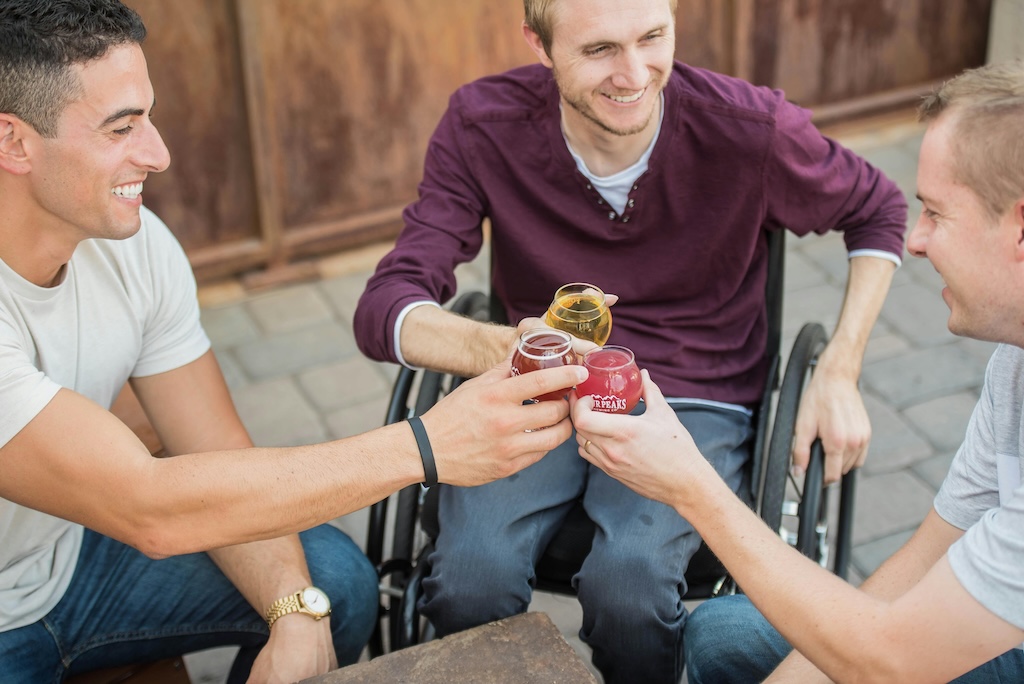
Mobile bar business plan template
Organizational structure and management.
Bar on the Go operates under a straightforward organizational structure. At the top is the CEO, Peter Johnson. Johnson holds an MBA and brings with him 15 years of experience in the hospitality industry. Working alongside Johnson is the Operations Manager, Emily Harris. With a degree in Business Administration, Harris harnesses her years of mobile bar industry experience to streamline operations ensuring efficient business processes.
In terms of staffing, the team consists of one Lead Bartender, Mark Collins who manages a team of three additional bartenders. Certified mixologist Collins carries a record of 12 years on the field in high-end bars. Two full-time drivers complete our team responsible for the mobile bar's transportation.
The company operates three mobile bars with their unique themes and features to cater to various customer needs and tastes, leading to optimal utilization of resources. Each mobile bar is exceptionally equipped to function independently with its bartender and driver.
Bar on the Go adopts comprehensive Human Resources policies and practices. All employees are provided with a written manual explaining company policies and procedures related to work hours, expectations, dress code, safety protocols, and code of conduct. The HR department is also responsible for creating a positive work environment by organizing regular team-building activities and facilitating open communication channels leading to better team dynamics.
Our business also plans to work with external advisors and consultants to tap into their industry expertise and outsider perspective to grow and develop the business. We have already partnered with a local mixology school to ensure our bartenders are updated with the latest trends and drink recipes. An arrangements agreement is in place with Suzanne Zimmerman, a business consultant known for her vast industry knowledge and connections with local event planning companies.
As for future staffing needs, we currently operate with a lean team, anticipating to hire more staff as the company expands. Plans include adding more bartenders to the team, and we're also foreseeing a hiring of sales and marketing personnel to boost our growth and brand visibility further.
Bar on the Go is adequately equipped and strives to stand out in this competitive industry, focusing on delivering premium services that garner public engagement and cater to consumer needs.
The products and services of Bar on the Go, our mobile bar service, are designed to cater to the needs of events and gatherings where bar facilities are not readily available. Our offerings consist of the delivery and setup of portable bars, supply of drinks, and professional bartender services.
A characteristic feature of our business is the unique mobile bars we operate. Named Sunrise, High Tide, and Nightfall, each has a unique theme and design, creating an appealing ambiance to charm different tastes and preferences. Our team of professional bartenders, led by the experienced Mark Collins, elevate the drinks experience beyond the ordinary, making any event memorable.
Undoubtedly, the USP of our business is the convenience and novelty we bring to festivities. We fulfill a gap in the market where customers yearn for bar services in their location of choice be it homes, offices, outdoor venues or otherwise. This is a compelling advantage over our rivals Drinks on Wheels, Cocktail Caravan, and Traveling Tavern, who merely deliver drinks but do not cater to the more comprehensive experience that we offer with our bar setup and bartending services.
Currently, Bar on the Go is fully operational, and we handle an average of 15 events every week, working from 6PM to 2AM on weekdays and 4PM to 3AM on weekends. In the long-term, we intend to expand our fleet of mobile bars and extend our services to a larger radius, enhancing our market reach. We foresee an enhanced engagement with corporate clients and festivals that would capitalize on our growth.
Intellectual property-wise, we are on track to secure trademark registration for Bar on the Go. This will provide us exclusive rights to the name in our business context. The designs and themes of our mobile bars (Sunrise, High Tide, and Nightfall) are also subject to copyright.
Our production process, which primarily consists of bar setup, drinks preparation, and bartending, is managed impeccably by our team. We ensure that each bar is cleaned, sanitized, and stocked correctly before departure for an event. The bartenders take charge of setup and drink preparation, ensuring a seamless experience for our clients.
Supplier-wise, we work with a local drinks distributor who provides us with high-quality beverages at competitive prices. On top of this, our supplier has agreed to a flexible resupply policy and speedy delivery times, which provide us stability and ease in our operations.
In conclusion, Bar on the Go is on the path to establishing itself as an innovative player offering remarkable convenience in the mobile bar industry. Our strong appeal lies in our unique selling points of full-range mobile bar service, professional bartending, and special ambiance which sets us distinctly apart from our competitors.

Mobile cocktail bar business plan pdf
To penetrate and establish in this competitive market, Bar on the Go will employ an aggressive marketing strategy that will enable us to reach as many potential customers as possible. We will leverage the power of social media platforms, primarily Instagram and Facebook, as they provide an excellent platform to showcase our visually compelling mobile bars and drinks.
Furthermore, we plan on teaming up with local event planning companies, offering them special partner deals, which would not only benefit both parties but also give us access to a consistent flow of customers. Given the current environment where personal and corporate events are gaining popularity, these partnerships will significantly enhance our business growth.
To solidify our brand positioning in the market, we will also engage in sponsorship activities at local food and drink festivals. Besides showcasing our mobile bar concept to a larger audience, it will also create an opportunity for guests to experience our services firsthand.
When it comes to sales, we plan on having a dedicated sales team onboard that will interact with potential clients, follow up on inquiries, and close deals. The team will also recommend the best package deals based on the client's budget and preferences.
Our pricing model revolves around offering our customers good value for their money. The pricing strategy is designed not only to be affordable for diverse budget ranges but also to give us a decent profit margin. It's essential to balance out customer friendly pricing with the need to keep the business profitable and sustainable. Pricing would be labelled under standard, deluxe, and premium packages that include different services and drink options.
We plan to deliver our mobile bars and services directly to the consumers at their preferred locations. This direct distribution model eliminates intermediaries, enhancing efficiencies and giving us better control over the delivery and setup process, which is essential in our line of business.
Promotion activities will include discounts and special offers, especially for first-time bookings. On this note, we are inclined to explore referral programs, where existing customers who refer new clients can enjoy discounts on their next booking. It fosters customer loyalty and simultaneously attracts new business.
Customer service is paramount for us. Hence, our customer service policies will be focused on ensuring an excellent customer experience right from the booking process until the end of the event. We will ensure quick and friendly response to inquiries, smooth and efficient booking process, punctuality in delivery and setup, and professional service during the event. A process will also be put in place for dealing with complaints promptly and effectively.
Finally, we completely understand the importance of responsible drinking. We will put forth strict ID checking policies to prevent underage drinking and encourage responsible behavior at all events we cater to.
As Bar on the Go promises to add to the cheer at gatherings with our unique, convenient and premium bar services, our marketing and sales strategy works as a roadmap guiding us to our business goals.
The operational workflow at Bar on the Go involves both regular day-to-day tasks as well as one-off activities. Our typical day begins with inventory checks conducted by our operations manager, Emily Harris. She ensures that our mobile bars are stocked with all essentials, from a diverse range of premium alcohol to accompanying mixers and garnishes. She also verifies that the equipment used is in optimal working condition and that hygiene standards are maintained around all workstations.
Once inventory checks are complete, our bartending team led by Mark Collins begins their work shifts depending on the bookings for the day. They are responsible for preparing cocktail mixes, garnishes and setting up the mobile bar units to the specific themes requested by our clients. Each bartender is trained to churn out an array of cocktails and beverages depending upon customer demands.
Our drivers, who are responsible for transporting the mobile bars, have their tasks cut out too. They conduct routine safety checks on the vehicles and drive to client sites as per the scheduled bookings.
The production process involves the assembly and disassembly of the bars, stirring up drinks, and the presentation of each beverage. Quality control measures are vital in our business, as we believe complete customer satisfaction can only be achieved through high-quality service. We make sure that all drinks are prepared as per standardized recipes and our bartenders execute their customer service duties in a professional manner, ensuring every customer at the bar enjoys an exemplary experience.
Inventory management is vital for Bar on the Go to ensure uninterrupted services. Regular inventory checks help us maintain an appropriate supply of spirits, wines, cocktail ingredients, and glassware. This also assists in managing costs by avoiding overstocking and eliminating wastage.
Our supply chain management primarily spans contracts with local breweries, wineries, and distilleries, ensuring a steady input for operations. Additionally, we have established relationships with local food vendors who can cater to supplementary needs at events.
The chief facilities and equipment needs for our business include the fleet of vehicles that serve as mobile bars, alcohol and cocktail making supplies, and safety equipment. These resources ensure we can uphold our brand reputation for premium, professional bar services at any event location. Maintenance of the mobile bars, including their structural integrity and hygiene, is of utmost importance in our operational plans.
Overall, Bar on the Go’s operational workflow ensures efficient and effective management that results in top-quality services delivered directly to our clients. We believe that our commitment to excellence and unique service proposition will establish us as leaders in the mobile bar business.

Cocktail bar business plan pdf
Our five-year financial projection for Bar on the Go anticipates steady growth via an increase in client bookings as our reputation strengthens within the industry. In the initial year, the total revenue is projected to be $150,000 with consistent growth over the following years. For the second year, sales are expected to rise to $250,000 and further increasing to reach $400,000 by the third year. The fourth and fifth year will maintain the trend, projecting revenues of $550,000 and $700,000, respectively.
From the income perspective, we estimate that approximately 75% of our revenue will be derived from private events such as parties and weddings, with the remaining 25% coming from corporate events and festivals. This composition is based on our market research and prevalent industry trends.
Operating costs include inventory supplies, staffing, vehicle maintenance, licensing, advertising, and overhead costs such as insurance and office space rental. Due to the nature of our mobile business and a significant part of our expenditure concentrated on maintaining inventory and vehicle upkeep, we expect our operational costs to comprise around 40% of our projected revenue.
Our profit and loss projection, therefore, assumes that the net profit margin after deducting all costs, including taxes, will approximately be around 25% of the total projected revenue. This assumes that no drastic changes will occur within the market or significant organizational crises that could impact profitability.
Cash flow for Bar on the Go is projected to be positive over the five-year forecast period. Initially, a significant cash outlay will be required for asset acquisition, license procurement, and marketing costs. As we progress, our cash inflow is expected to exceed our operational expenses, leading to a healthy cash flow that will enable us to steer business expansion and stay resilient.
The Balance Sheet analysis projects increases in asset values throughout the period with a high emphasis on inventory and cash components. Similarly, equity growth is anticipated to be positive with a decreasing reliance on borrowed capital. A stable balance of current and fixed assets against short and long-term liabilities would ensure a healthy and robust financial position.
Our break-even analysis indicates that we will need to cater to around eight events per week or approximately 33 per month to cover our monthly operating expenses. Given our operating hours and ample market demand, reaching this break-even point is realistic and achievable within the first few months of operation.
Our financial projections are based on certain assumptions, such as a steady growth in demand for mobile bar services, an absence of drastic changes in market conditions or regulatory requirements, and a steady inventory supply chain. Any change in these conditions would necessitate revisiting and modifying these projections.
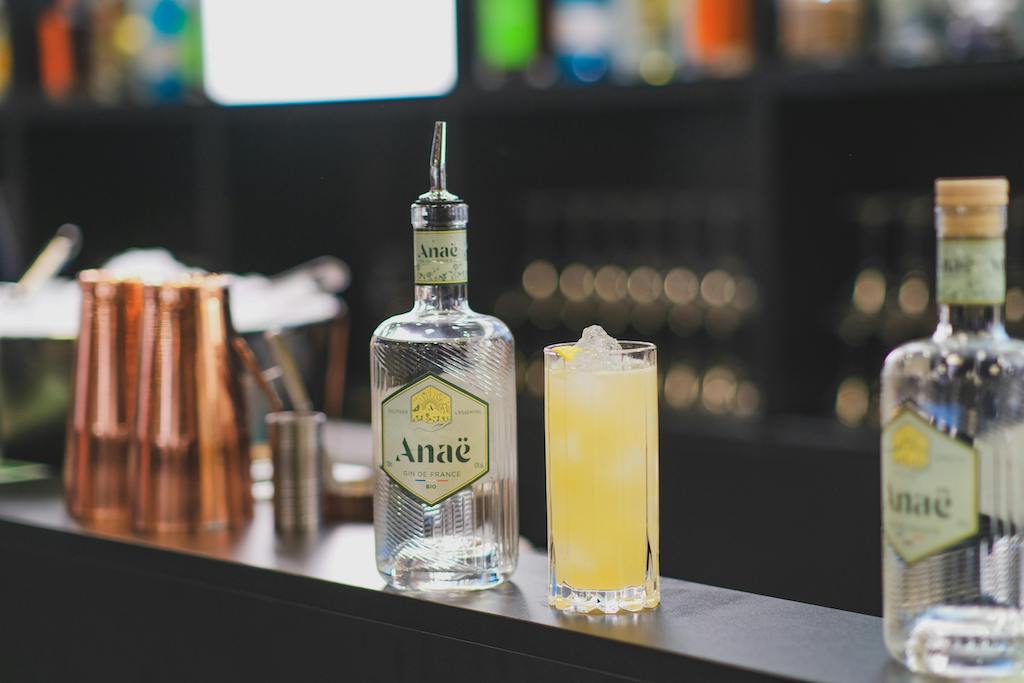
Bar business plan template
Identifying potential risks is key to our business planning and strategic decision-making process. Some of the risks we anticipate facing include:
1. Market risk: The mobile bar industry is still growing and evolving. Changes in market trends, consumer behavior, or a sudden increase in competitors could potentially impact our business revenues.
2. Operational risk: Operational mishaps such as vehicle breakdowns, stock shortages, staff absenteeism, or cancellations could interfere with our ability to serve our clients effectively and on time.
3. Financial risk: Unforeseen costs or insufficient cash flow could limit our capacity to meet operational needs and business expansion plans.
4. Legal and compliance risk: Failing to comply with regulatory standards, licensing requirements, and health and safety rules could result in fines, penalties, or even business closure.
To mitigate these risks, we have formulated some strategies. For market risk, continuous market research, and adaptation to trends is fundamental. Partaking in networking events and partnerships with local event planning companies will diversify our clientele and stabilize customer demand.
Operational risks will be managed by maintaining a well-trained and flexible workforce ready to step in at short notice, keeping backup supplies, and regularly servicing our vehicles to avoid breakdowns. Also, we plan to keep buffer slots for last-minute bookings and cancellations while also encouraging clients to make early bookings and payments.
Financial risks will be managed by maintaining a robust financial plan, preparing for unexpected costs, and maintaining an emergency fund. Regular financial audits and reviews will ensure our financial health.
For legal risks, we have a designated compliance officer to ensure we uphold all regulatory requirements, health and safety standards, and licensing agreements. Additionally, we pledge to uphold responsible serving practices and strict age verification to maintain license integrity.
Our contingency plan includes an emergency fund, comprehensive insurance for our vehicles and equipment, a back-up mobile unit, and plans to diversify our services to withstand market fluctuations.
With these risk identification and mitigation measures in place, along with contingency plans, we will be able to manage and overcome any potential issues. By doing so, we protect our brand reputation, ensure customer satisfaction, and safeguard our financial health, thus securing operational resilience.
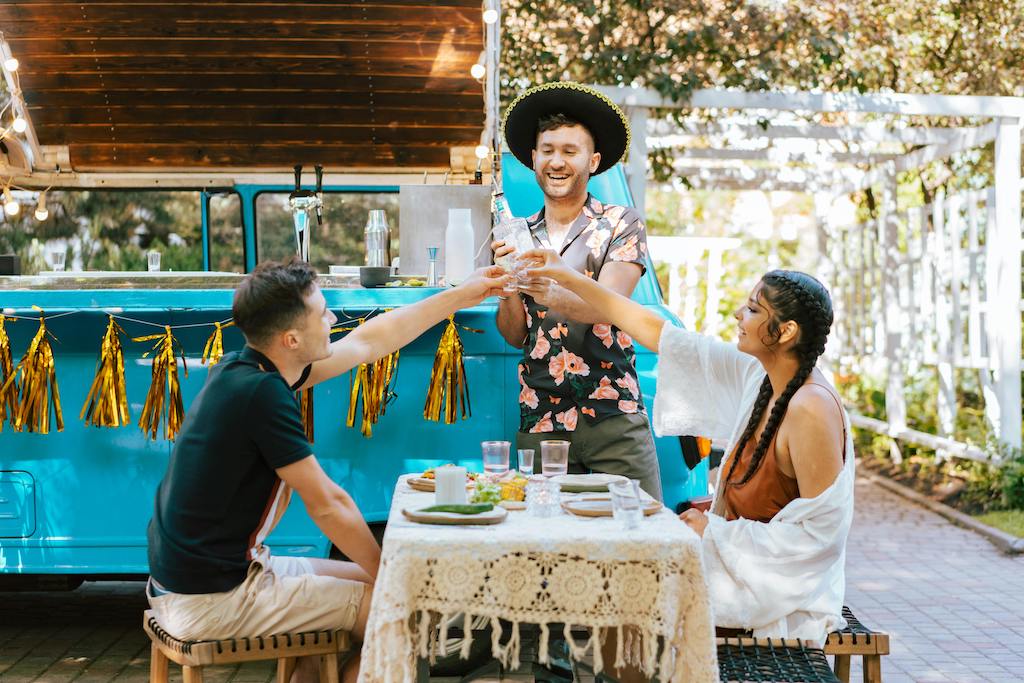
Mobile bar business plan example
More business plan templates.
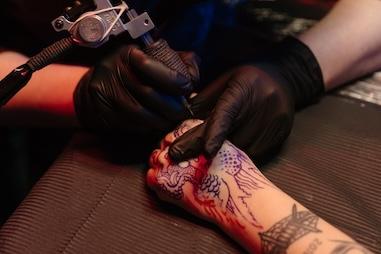
Tattoo shop business plan
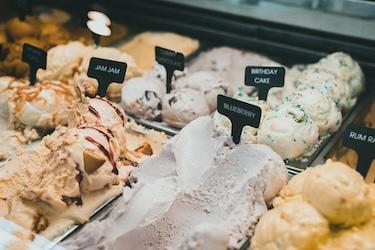
Ice cream shop business plan

Flower shop business plan
- Sample Business Plans
- Food, Beverage & Restaurant
Mobile Bar Business Plan

Business flexibility, low startup & infrastructure costs, and minimal staff requirements make starting a mobile bar a lucrative yet rewarding business option.
Anyone can start a new business, but you need thorough business planning when it comes to raising funding, applying for loans, and scaling it like a pro!
Need help writing a business plan for your mobile bar business? You’re at the right place. Our mobile bar business plan template will help you get started.

Free Business Plan Template
Download our free mobile bar business plan template now and pave the way to success. Let’s turn your vision into an actionable strategy!
- Fill in the blanks – Outline
- Financial Tables
How to Write a mobile bar Business Plan?
Writing a mobile bar business plan is a crucial step toward the success of your business. Here are the key steps to consider when writing a business plan:

1. Executive Summary
An executive summary is the first section planned to offer an overview of the entire business plan. However, it is written after the entire business plan is ready and summarizes each section of your plan.
Here are a few key components to include in your executive summary:
- Introduce your business: Start your executive summary by briefly introducing your business to your readers.
- This section may include the name of your mobile bar, its location, when it was founded, and if there is any specific information you would like to add.
- Market opportunity: Summarize your market research, including market size, growth potential, and marketing trends. Highlight the opportunities in the market and how your business will fit in to fill the gap.
- Product and services: Highlight the mobile bar services you offer your clients. The USPs and differentiators you offer are always a plus.
- For instance, your products and services may include alcoholic and non-alcoholic beverages, bartending services, event planning and coordination, and similar other services.
- Marketing & sales strategies: Outline your sales and marketing strategies—what marketing platforms you use, how you plan on acquiring customers, etc.
- Financial highlights: Briefly summarize your financial projections for the initial years of business operations. Include any capital or investment requirements, associated startup costs, projected revenues, and profit forecasts.
- Call to action: Summarize your executive summary section with a clear CTA, for example, inviting angel investors to discuss the potential business investment.
Ensure your executive summary is clear, concise, easy to understand, and jargon-free.
Say goodbye to boring templates
Build your business plan faster and easier with AI
Plans starting from $7/month

2. Business Overview
The business overview section of your business plan offers detailed information about your business. The details you add will depend on how important they are to your business. Yet, business name, location, business history, and future goals are some of the foundational elements you must consider adding to this section:
- Business description: Describe your business in this section by providing all the basic information:
- Trailer bars
- Horsebox bars
- Pop-up bars
- Trolley bars
- Describe the legal structure of your mobile bar, whether it is a sole proprietorship, LLC, partnership, or others.
- Explain where your business is located and why you selected the place.
- Owners: List the founders of your mobile bar. Describe what shares they own and their responsibilities for efficiently managing the business.
- Mission statement: Summarize your business’ objective, core principles, and values in your mission statement. This statement needs to be memorable, clear, and brief.
- Business history: If you’re an established mobile bartending service provider, briefly describe your business history, like—when it was founded, how it evolved over time, etc.
- Additionally, If you have received any awards or recognition for excellent work, describe them.
- Future goal: It’s crucial to convey your aspirations and vision. Mention your short-term and long-term goals; they can be specific targets for revenue, market share, or expanding your services.
This section should provide a thorough understanding of your business, its history, and its future plans. Keep this section engaging, precise, and to the point.
3. Market Analysis
The market analysis section of your business plan should offer a thorough understanding of the industry with the target market, competitors, and growth opportunities. You should include the following components in this section.
- Target market: Start this section by describing your target market. Define your ideal customer and explain what types of services they prefer. Creating a buyer persona will help you easily define your target market to your readers.
- For instance, folks planning to host weddings, corporate or private events can be an ideal target audience for a mobile bar.
- Market size and growth potential: Describe your market size and growth potential and whether you will target a niche or a much broader market.
- Competitive analysis: Identify and analyze your direct and indirect competitors. Identify their strengths and weaknesses, and describe what differentiates your mobile bartending services from them. Point out how you have a competitive edge in the market.
- Market trends: Analyse emerging trends in the industry, such as technology disruptions, changes in customer behavior or preferences, etc. Explain how your business will cope with all the trends.
- For instance, after the COVID-19 outbreak, customers increasingly prefer contactless bartending services, so explain how you plan to implement contactless services.
- Regulatory environment: List regulations and licensing requirements that may affect your mobile bar, such as business registration, insurance, health & regulations, alcoholic service regulations, transportation regulations, etc.
Here are a few tips for writing the market analysis section of your mobile bartending business plan:
- Conduct market research, industry reports, and surveys to gather data.
- Provide specific and detailed information whenever possible.
- Illustrate your points with charts and graphs.
- Write your business plan keeping your target audience in mind.
4. Products And Services
The product and services section should describe the specific services and products that will be offered to customers. To write this section should include the following:
- Beverage service
- Bartending service
- Equipment rental
- Event planning and coordination
- Beverage option: Mention the alcoholic and non-alcoholic drinks your mobile bar will serve. These drinks may include beer, vodka, cider, and non-alcoholic beverages.
- Bartending services: Describe the bartending services your mobile bar will provide, including drink customization or recommendation and the experience and expertise of the bartenders.
- Additional services: Mention if your mobile bar provides any additional services. You may include services like retail beverage sales, tasting events, and classes to educate customers about wines.
In short, this section of your mobile bar plan must be informative, precise, and client-focused. By providing a clear and compelling description of your offerings, you can help potential investors and readers understand the value of your business.
5. Sales And Marketing Strategies
Writing the sales and marketing strategies section means a list of strategies you will use to attract and retain your clients. Here are some key elements to include in your sales & marketing plan:
- Unique selling proposition (USP): Define your business’s USPs depending on the market you serve, the equipment you use, and the unique services you provide. Identifying USPs will help you plan your marketing strategies.
- For example, you may mention customizations, professional bartending services, and various beverage options as some of your USPs.
- Pricing strategy: Describe your pricing strategy—how you plan to price your bartending services and stay competitive in the local market. You can mention any discounts you plan on offering to attract new customers to your service.
- Marketing strategies: Discuss your marketing strategies to market your services. You may include some of these marketing strategies in your business plan—social media marketing, Google ads, brochures, email marketing, content marketing, referral marketing, and print marketing.
- Sales strategies: Outline the strategies you’ll implement to maximize your sales. Your sales strategies may include upselling products and services, partnering with local businesses, providing excellent bartending services, etc.
- Customer retention: Describe your customer retention strategies and how you plan to execute them. For instance, your customer retention strategies may include maintaining good communication, introducing loyalty programs, and addressing customer feedback.
Overall, this section of your mobile bartending business plan should focus on customer acquisition and retention.
Have a specific, realistic, and data-driven approach while planning sales and marketing strategies for your mobile bar, and be prepared to adapt or make strategic changes in your strategies based on feedback and results.
6. Operations Plan
The operations plan section of your business plan should outline the processes and procedures involved in your business operations, such as staffing requirements and operational processes. Here are a few components to add to your operations plan:
- Staffing & training: Mention your bartending business’s staffing requirements, including the number of employees or bartenders needed. Include their qualifications, the training required, and the duties they will perform.
- Operational process: Outline the processes and procedures you will use to run your mobile bar. Your operational processes may include planning & preparation, travel & setup, inventory management, and staff & financial management.
- Equipment & machinery: Include the list of equipment and machinery required for the mobile bar, such as glassware, ice maker, blender, refrigeration unit, lighting system, sound system, and transportation vehicle.
- Explain how these technologies help you maintain quality standards and improve the efficiency of your business operations.
Adding these components to your operations plan will help you lay out your business operations, which will eventually help you manage your business effectively.
7. Management Team
The management team section provides an overview of your mobile bar’s management team. This section should provide a detailed description of each manager’s experience and qualifications, as well as their responsibilities and roles.
- Founder/CEO: Mention the founders and CEO of your mobile bar, and describe their roles and responsibilities in successfully running the business.
- Key managers: Introduce your management and key members of your team, and explain their roles and responsibilities.
- It should include key executives, senior management, and other department managers (e.g., operations manager, beverage manager.) involved in the business operations, including their education, professional background, and any relevant experience in the industry.
- Organizational structure: Explain the organizational structure of your management team. Include the reporting line and decision-making hierarchy.
- Compensation plan: Describe your compensation plan for the management and staff. Include their salaries, incentives, and other benefits.
- Advisors/consultants: Mentioning advisors or consultants in your business plans adds credibility to your business idea.
- So, if you have any advisors or consultants, include them with their names and brief information consisting of roles and years of experience.
This section should describe the key personnel for your mobile bartending services, highlighting how you have the perfect team to succeed.
8. Financial Plan
Your financial plan section should provide a summary of your business’s financial projections for the first few years. Here are some key elements to include in your financial plan:
- Profit & loss statement: Describe details such as projected revenue, operational costs, and service costs in your projected profit and loss statement. Make sure to include your business’s expected net profit or loss.
- Cash flow statement: The cash flow for the first few years of your operation should be estimated and described in this section. This may include billing invoices, payment receipts, loan payments, and any other cash flow statements.
- Balance sheet: Create a projected balance sheet documenting your mobile bar’s assets, liabilities, and equity.
- Break-even point: Determine and mention your business’s break-even point—the point at which your business costs and revenue will be equal.
- This exercise will help you understand how much revenue you need to generate to sustain or be profitable.
- Financing needs: Calculate costs associated with starting a mobile bar, and estimate your financing needs and how much capital you need to raise to operate your business. Be specific about your short-term and long-term financing requirements, such as investment capital or loans.
Be realistic with your financial projections, and make sure you offer relevant information and evidence to support your estimates.
9. Appendix
The appendix section of your plan should include any additional information supporting your business plan’s main content, such as market research, legal documentation, financial statements, and other relevant information.
- Add a table of contents for the appendix section to help readers easily find specific information or sections.
- In addition to your financial statements, provide additional financial documents like tax returns, a list of assets within the business, credit history, and more. These statements must be the latest and offer financial projections for at least the first three or five years of business operations.
- Provide data derived from market research, including stats about the mobile bar industry, user demographics, and industry trends.
- Include any legal documents such as permits, licenses, and contracts.
- Include any additional documentation related to your business plan, such as product brochures, marketing materials, operational procedures, etc.
Use clear headings and labels for each section of the appendix so that readers can easily find the necessary information.
Remember, the appendix section of your mobile bartending business plan should only include relevant and important information supporting your plan’s main content.
The Quickest Way to turn a Business Idea into a Business Plan
Fill-in-the-blanks and automatic financials make it easy.
This sample mobile bar business plan will provide an idea for writing a successful mobile bar plan, including all the essential components of your business.
After this, if you still need clarification about writing an investment-ready business plan to impress your audience, download our mobile bar business plan pdf .
Related Posts
400+ Business Plan Examples
How to Write a Business Plan Cover Page
10 Best Business Planning Tools
Business Plan Outline Creating Guide
Frequently Asked Questions
Why do you need a mobile bar business plan.
A business plan is an essential tool for anyone looking to start or run a successful mobile bar business. It helps to get clarity in your business, secures funding, and identifies potential challenges while starting and growing your business.
Overall, a well-written plan can help you make informed decisions, which can contribute to the long-term success of your mobile bar.
How to get funding for your mobile bar business?
There are several ways to get funding for your mobile bar business, but self-funding is one of the most efficient and speedy funding options. Other options for funding are:
Small Business Administration (SBA) loan
Crowdfunding, angel investors.
Apart from all these options, there are small business grants available, check for the same in your location and you can apply for it.
Where to find business plan writers for your mobile bar business?
There are many business plan writers available, but no one knows your business and ideas better than you, so we recommend you write your mobile bar business plan and outline your vision as you have in your mind.
What is the easiest way to write your mobile bar business plan?
A lot of research is necessary for writing a business plan, but you can write your plan most efficiently with the help of any mobile bar business plan example and edit it as per your need. You can also quickly finish your plan in just a few hours or less with the help of our business plan software.
About the Author
Upmetrics Team
Upmetrics is the #1 business planning software that helps entrepreneurs and business owners create investment-ready business plans using AI. We regularly share business planning insights on our blog. Check out the Upmetrics blog for such interesting reads. Read more

Turn your business idea into a solid business plan
Explore Plan Builder
Plan your business in the shortest time possible
No Risk – Cancel at Any Time – 15 Day Money Back Guarantee

Create a great Business Plan with great price.
- 400+ Business plan templates & examples
- AI Assistance & step by step guidance
- 4.8 Star rating on Trustpilot
Streamline your business planning process with Upmetrics .


IMAGES